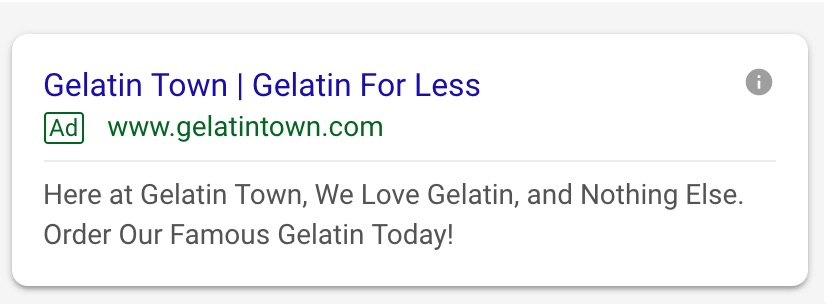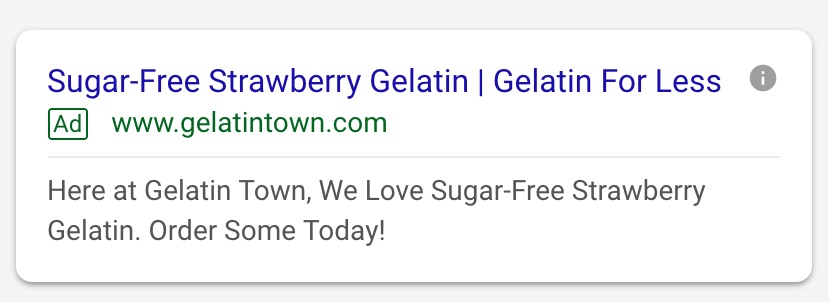There are a lot of different elements that go into a successful PPC account, but few things are more frustrating than setting up your account only to have your clicks limited by a high cost per click (CPC).
In this post, we will examine what causes high CPCs, and some cover a handful of strategies you can try to drive them down.
Max CPC vs. Actual CPC
Before we start, it’s best to make the distinction between Max CPC and Actual CPC. Max CPC is the maximum amount of money that you’re willing to spend on a click. Actual CPC is what you end up paying.
Example: If your Max CPC bid is $2.00, but you can secure the top spot with a bid of $1.65, you’ll only pay $1.65 per click instead of $2.00.
Of course, there are other factors that go into bidding, but we won’t get into them in this article. You can read about those factors here.
What Causes High CPC?
Before you can work on improving your average CPC, it’s essential to understand the factors that influence it. There are three primary considerations:
High Competition
Google Ads runs similarly to an eBay auction. Every time someone searches, the auction takes place. Several things determine the winner, but your bid is one of the most significant factors. The more people that are bidding on a keyword, the more expensive it will be.
Industry
This is one that you can’t really control, but it’s vital to understand. Using Google’s Keyword Planner can give you an idea of what the expected CPC is for keywords in your industry. In general, industries that have a higher value per conversion have higher average CPCs because advertisers are willing to pay more per click.
Example: For law firms, one conversion could mean hundreds of thousands of dollars for the business, so it makes sense to pay a much higher cost per click. Compare that to a retailer selling boxes of gelatin for $2 a piece. They have to pay a much lower cost per click to remain profitable.
Quality Score
Quality Score is a metric given by Google to rate the quality of your keywords. It combines your historical performance and the overall relevance of your ads, landing pages, and keywords. The end result is a score from 1 to 10 that directly affects what you will have to pay to reach a specific position on the page. The more relevant you are, the less Google will charge you to rank high. We’ll talk about improving your quality score later in the article.
Strategies to Lower CPC
Understanding why your CPC is a specific price empowers you to begin to improve it. Here are a few strategies to keep in mind when attempting to optimize your campaigns and drive down average CPC.
Lower Bids
The most straightforward tip to implement is to aim for a lower ad position. Experiment with showing up in position 1, 2, 3, etc. Does showing up in position 3 seriously decrease your clicks? If users are still clicking even when you aren’t in position 1, it may be worth it to settle for a lower position if it means significant decreases in CPC.
Long-Tail Keywords
Another solution to high CPC is to bid on keywords where your competitors aren’t. The more specific you can get with your keywords while still being relevant, the cheaper your cost per click will become because fewer people are bidding.
Example: If you are running an e-commerce gelatin company (pretty niche, I know), you might think of bidding on the word “gelatin.” Makes sense, but it’s likely that every other online gelatin retailer in the country is also bidding on that keyword.
Instead, bid on “sugar-free strawberry gelatin.” Still relevant, but much less likely to be bid on by competitors.
Improve Ad Relevance
Look to improve your quality score by improving your ad relevance. The closer your ad resembles a user’s search, the higher your rating will be.
Example: Let’s revisit my online gelatin retailer. Say a user searches for “strawberry sugar-free gelatin,” and this ad shows up:

It’s relevant, sure, but it could be better.
Now, what if I changed the headline to this:

Much more relevant to the search.
I know what you’re thinking: “But how can I make an ad that specific for everyone?” I’m glad you asked, that brings us to our next point.
Make Your Ad Groups More Specific
When creating campaigns and ad groups, separate your offerings into small, related groups so you can target each group individually.
Doing this gives yourself the flexibility to create ads tailored specifically to each ad group. This increased ad relevance will provide your quality score a boost, and decrease your average cost per click.
Example: Gelatin Town offers many different types of gelatin, for many different, gelatin-related needs. It’s important to distinguish between all our diverse offerings. So, I would create ad groups like “sugar-free gelatin” and “flavored gelatin” and tailor my ad copy to those specific ad groups.
Test New Landing Pages
If you have multiple landing pages or have the budget to create them, testing new ones can be a fantastic way to improve CPC. Landing pages influence two factors in the quality score: ad relevance and landing page experience. You can find more information on how to create a killer landing page here.
Example: Back to Gelatin Town. If I have an ad group for “sugar-free gelatin,” I want my ads to go to the most relevant landing page possible. So, instead of having the ad linking to my site’s home page, it should link to a page displaying all of Gelatin Town’s delicious sugar-free gelatin.
Now, Go Do It!
So, what did we learn today?
Hopefully, you learned a bit about what causes your actual CPC to be what it is, as well as a few ways to improve the overall health of your account. Following these tips should help you begin to make progress driving your CPC down.










That’s great!